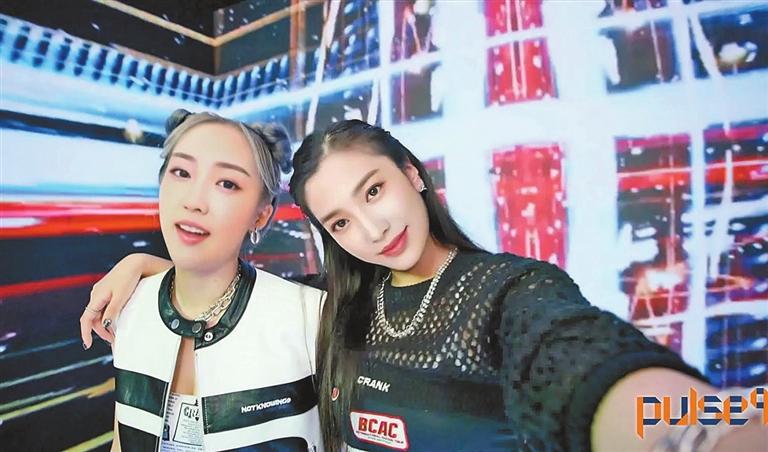
IN the music video for their latest single “DTDTGMGN,” members of South Korean band Eternity dance in perfect time to a bubblegum pop beat in a neon pink room decorated with school uniforms and celebrity posters. The dizzying camera movements and quick-paced scene changes are typical of the K-pop genre that has become a global phenomenon in recent years. “Hold me tight, lean on my shoulder,” one member sings. But the group’s fans cannot do either of those things, physically speaking — because none of Eternity’s 11 bandmates are real. Built using AI technology, Eternity is one of the latest South Korean acts pushing the boundary between real and virtual entertainment. And the group’s creator and management company, Pulse9, believes that computer-generated stars have a significant edge over their real-life counterparts. As with most popular K-pop groups, Eternity’s members include a group leader, vocalists, rappers and dancers. But one member in particular, Zaein, can do it all. “Zaein has (a combination of) characteristics that most human artists would be hard-stretched to pull off,” said the firm’s CEO Park Ji-eun. “She can sing very well, rap very well and she can be creative as a (fashion) designer. And she’s a natural-born actress.” With the help of real-time face-swapping technology and an AI-generated voice, Zaein is played by 10 different people, including actors, singers and dancers, who lend their talents to her avatar as needed. In one video posted on Zaein’s Instagram account, for example, she deftly rides a longboard beside Seoul’s Han River. For the video, her creators filmed the stunt with a stand-in whose face was later swapped out for Zaein. Real-time face-swapping and early forms of “deepfake” technology have existed for almost a decade. In that time, virtual influencers like Lil Miquela and South Korea’s own Rozy have gained large online followings in the fashion and music spaces. But the latest advancements in AI-generated video and audio are making it easier for companies like Pulse9 to create convincing virtual characters, while advances in generative AI programs like ChatGPT are eliminating the need for stars like Zaein to be “played” by anyone at all. The team at Pulse9 began the process of bringing Eternity to “life” by designing its members’ looks. Park’s team generated 101 unique digital faces, inspired by existing Korean celebrities, before dividing them into four categories — dubbed “sexy,” “cute,” “intelligent” and “innocent” — and narrowing the selection down to 11 via an online poll. Using deepfake and motion capture technology, Pulse9 then produced the band’s first music video (to accompany the ironically titled track “I’m Real”) in 2021. Reaction to the video was mixed. Many social media users felt the band members’ facial expressions looked unnatural and divorced from their bodies, while others cited the “uncanny valley” effect, whereby viewers are discomforted by things that resemble humans but aren’t. But five months later, when Pulse9 released Eternity’s next music video, “No Filter,” followers noted that the group was almost indistinguishable from the real thing. “I’m surprised how realistic they sound, and the visuals look more realistic than the debut song,” reads the most liked comment on YouTube. “DTDTGMGN,” which came out last October, represented another huge leap in quality. “Until last year, the face was the only virtual part of the performer, but today we can make whole full body (images) based on AI technology,” Park said, adding that “No Filter” was also composed using AI (although humans then edited the song and wrote lyrics). SM Entertainment, the agency behind K-pop megastars like Super Junior, Girls’ Generation and Exo, among others, has also been experimenting with AI. In 2020, the company debuted Aespa, a group comprising four human artists and their virtual counterparts. After the band’s launch, SM’s founder Lee Soo-man declared that the future of entertainment is “celebrity and robot.” Elsewhere, BTS’ management company Hybe used AI to tweak one of its singer’s pronunciation and pitch, before releasing one of his songs in six languages — Korean, English, Spanish, Chinese, Japanese and Vietnamese. (SD-Agencies) | 
